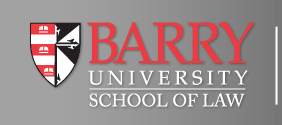Abstract
Free, Prior Informed Consent ("FPIC") from the UN Declaration on the Rights of Indigenous Peoples has been central to global Indigenous action against extractive industries’ harmful practices. Yet, it is often not fully recognized as a sovereign right, which hinders Indigenous peoples’ ability to use it to its full potential. Historically, FPIC has been deemed a consultation right, not a right to “veto” industry action on Indigenous land. Countries that have interpreted FPIC as a mere consultation right have allowed further exploitation of Indigenous peoples, usually leading to environmental and humanitarian disasters. However, when courts have respected the right to consent, rather than consultation, incredible environmental and Indigenous justice has followed. Case studies of South Africa and Ecuador show how communities have protected the environment by asserting their right to FPIC, and thus the right to block environmentally degrading development. FPIC can be an effective way for Indigenous people to achieve environmental justice, yet the delay of universal acceptance has proven harmful to both the environment and Indigenous rights. Therefore, finding additional avenues to achieve this goal is paramount. One such avenue to redress environmental and Indigenous justice is the movement to return Indigenous lands to their ancestral occupants. Globally, governments and private organizations have returned stewardship, and in some cases, ownership to Indigenous peoples. Not only is the movement justified for ethical and humanitarian reasons, but also to protect habitats, wildlife, and biodiversity, as shown by the recent successes of Gayini (New South Wales) and the Bison Range (United States).
Recommended Citation
Bellamy, Paige. (2023) "Free, Prior Informed Consent and Extractive Industry: Indigenous Action is the Past, Present, and Future of Global Environmental Justice," Environmental and Earth Law Journal (EELJ): Vol. 13 : Iss. 1 , Article 4.
Included in
Administrative Law Commons, Admiralty Commons, Animal Law Commons, Energy and Utilities Law Commons, Environmental Law Commons, Jurisprudence Commons, Land Use Law Commons, Law and Society Commons, Natural Resources Law Commons, Oil, Gas, and Mineral Law Commons
